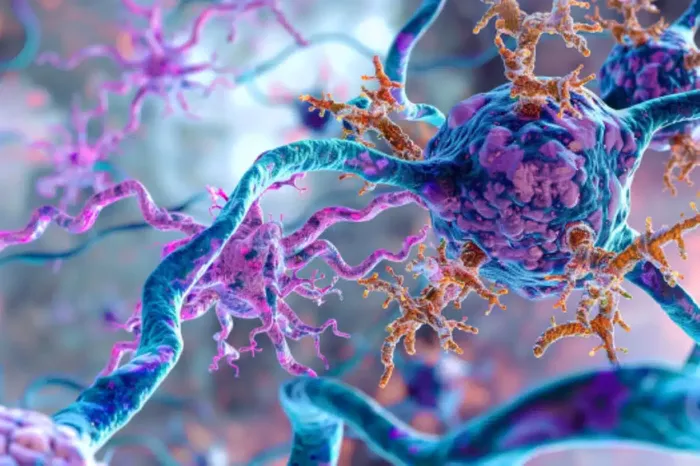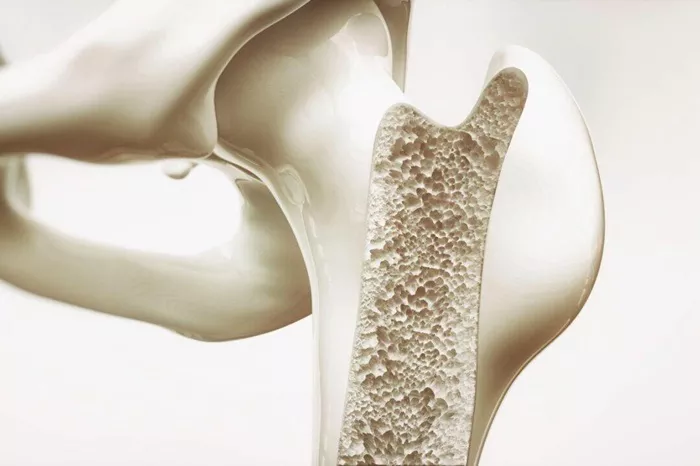Psychological disorders, also known as mental health disorders or psychiatric disorders, are conditions that affect the way a person thinks, feels, behaves, or interacts with others. These disorders can vary significantly in terms of their severity, and they can have a profound impact on an individual’s daily functioning and overall well-being. The symptoms of psychological disorders can be complex, varying from one condition to another, and they often require careful diagnosis and treatment by a mental health professional.
What Are The Symptoms Of Psychological Disorders? This article provides a detailed examination of the various symptoms associated with psychological disorders, shedding light on the ways these conditions manifest, the challenges they present, and the importance of early intervention.
Psychological Disorders
Before delving into the symptoms, it is essential to define what psychological disorders are. These disorders are characterized by a pattern of behavioral or psychological symptoms that impact multiple aspects of life, such as work, relationships, and daily functioning. Psychological disorders can range from mild to severe and may include conditions such as anxiety disorders, mood disorders, personality disorders, psychotic disorders, and eating disorders, among others.
Psychological disorders can develop for various reasons, including genetic factors, environmental influences, trauma, chemical imbalances in the brain, and other biological and psychological factors. Although the exact cause may not always be identifiable, the symptoms can be distressing and disruptive.
General Symptoms of Psychological Disorders
Psychological disorders manifest in numerous ways, and symptoms can vary widely. However, some common signs may be present across different disorders. These include:
Mood Swings: Individuals with psychological disorders may experience intense emotional fluctuations. These mood changes may range from feeling excessively happy or euphoric to feeling hopeless or very depressed.
Withdrawal from Social Interactions: Affected individuals may begin to isolate themselves from friends, family, and social events, even those they once enjoyed.
Distorted Thinking: Psychological disorders, such as schizophrenia, can cause individuals to experience hallucinations or delusions. Thoughts may become disorganized or disconnected, leading to difficulty in thinking clearly and logically.
Changes in Appetite or Sleep Patterns: Disorders like depression and anxiety can lead to significant changes in eating habits, whether in the form of overeating or loss of appetite. Similarly, disturbed sleep patterns, such as insomnia or excessive sleepiness, are often common.
Extreme Fear or Anxiety: Individuals with anxiety disorders may experience constant worry, panic attacks, or heightened levels of stress that interfere with normal activities.
Impulsivity or Risky Behavior: Some psychological disorders, such as bipolar disorder or borderline personality disorder, may lead individuals to engage in impulsive or reckless behavior, such as substance abuse or risky sexual activities.
Understanding these general symptoms is vital in identifying potential psychological disorders, but it is also crucial to recognize that the symptoms can differ greatly depending on the specific disorder.
Symptoms of Anxiety Disorders
Anxiety disorders are among the most common psychological disorders. These include conditions like generalized anxiety disorder (GAD), panic disorder, social anxiety disorder, and specific phobias. The hallmark symptom of anxiety disorders is excessive fear or worry.
Physical Symptoms:
Increased Heart Rate: Anxiety often leads to a faster heart rate or palpitations.
Sweating: Profuse sweating, especially during anxiety-inducing situations, is common.
Trembling or Shaking: The body may respond to stress by shaking or trembling uncontrollably.
Muscle Tension: Anxiety frequently causes muscles to tense up, leading to stiffness or pain.
Shortness of Breath: Difficulty breathing or a sensation of being suffocated is often experienced during panic attacks.
Psychological Symptoms:
Excessive Worrying: Persistent and overwhelming thoughts about potential negative outcomes, even when the cause is minor.
Irritability: People with anxiety disorders may become easily frustrated or irritable.
Difficulty Concentrating: Anxiety can impair cognitive function, making it hard to focus or think clearly.
Restlessness or Feeling on Edge: Individuals often feel constantly “on alert,” making it difficult to relax or feel comfortable.
Symptoms of Mood Disorders
Mood disorders involve disruptions in a person’s emotional state. These conditions include major depressive disorder (depression), bipolar disorder, and dysthymia. The symptoms of mood disorders often affect both emotional and physical well-being.
Symptoms of Depression:
Persistent Sadness: A core symptom of depression is a constant feeling of sadness or emptiness that lasts for an extended period.
Loss of Interest or Pleasure: Activities once enjoyed may no longer bring joy, and individuals may have little desire to engage in social or recreational activities.
Fatigue or Low Energy: Depression often causes extreme tiredness, making it difficult to perform daily tasks.
Sleep Disturbances: Insomnia or oversleeping are common in depression.
Feelings of Worthlessness or Guilt: Negative self-talk and feelings of guilt or worthlessness can overwhelm the individual.
Suicidal Thoughts: In severe cases, depression can lead to thoughts of self-harm or suicide.
Symptoms of Bipolar Disorder:
Manic Episodes: Individuals may experience extreme high moods, characterized by excessive energy, racing thoughts, impulsiveness, and poor judgment. These episodes may also include irritability and aggression.
Depressive Episodes: As a contrast to manic episodes, depressive phases bring feelings of sadness, fatigue, and a lack of motivation.
Sleep Disruption: People with bipolar disorder often experience drastic changes in their sleeping patterns, such as a reduced need for sleep during manic episodes or excessive sleep during depressive episodes.
Symptoms of Psychotic Disorders
Psychotic disorders, such as schizophrenia, are characterized by disturbances in perception, thinking, and emotional regulation. These conditions can lead individuals to lose touch with reality and struggle with distinguishing between what is real and what is not.
Hallucinations:
Hallucinations are sensory experiences that are not based on reality. The most common type of hallucination is auditory (hearing voices), but visual, tactile, or olfactory hallucinations can also occur.
Delusions:
Delusions are false beliefs that are firmly held despite evidence to the contrary. For example, a person might believe they have special powers or that they are being persecuted by others.
Disorganized Thinking:
Individuals with psychotic disorders may have trouble organizing their thoughts, leading to incoherent speech or difficulty in holding conversations.
Disorganized or Abnormal Motor Behavior:
This includes behaviors such as excessive movement, inappropriate responses to situations, or complete lack of movement (catatonia).
Symptoms of Personality Disorders
Personality disorders involve persistent patterns of behavior, thought, and emotion that deviate from cultural expectations and significantly impact social and occupational functioning. These disorders are divided into three clusters: A, B, and C.
Cluster A: Odd or Eccentric Disorders
Paranoid Personality Disorder: Characterized by constant mistrust and suspicion of others.
Schizoid Personality Disorder: Individuals may appear detached, unemotional, and uninterested in relationships.
Schizotypal Personality Disorder: Marked by odd beliefs, eccentric behavior, and social anxiety.
Cluster B: Dramatic, Emotional, or Erratic Disorders
Antisocial Personality Disorder: A disregard for others’ rights, impulsivity, and manipulative behavior are common.
Borderline Personality Disorder: Intense mood swings, impulsive behaviors, and unstable relationships are key features.
Histrionic Personality Disorder: Individuals may exhibit attention-seeking behavior and excessive emotionality.
Narcissistic Personality Disorder: An inflated sense of self-importance and a lack of empathy for others are typical.
Cluster C: Anxious or Fearful Disorders
Avoidant Personality Disorder: Individuals may feel inadequate and avoid social situations due to fear of rejection.
Dependent Personality Disorder: A pattern of relying on others for emotional and decision-making support.
Obsessive-Compulsive Personality Disorder: Individuals may be perfectionistic, rigid, and overly focused on rules and order.
Symptoms of Eating Disorders
Eating disorders, such as anorexia nervosa, bulimia nervosa, and binge-eating disorder, primarily involve an unhealthy relationship with food and body image. These disorders can have serious health consequences and are often associated with extreme behaviors related to food intake.
Anorexia Nervosa:
Extreme Weight Loss: Individuals may engage in restrictive eating behaviors, leading to dangerously low body weight.
Fear of Gaining Weight: A pervasive fear of gaining weight, even when underweight, drives restrictive eating and excessive exercise.
Distorted Body Image: A person with anorexia may see themselves as overweight, even when they are dangerously underweight.
Bulimia Nervosa:
Binge Eating Episodes: Individuals may consume large amounts of food in a short period, often in secret.
Purging Behaviors: To counteract the effects of binge eating, purging behaviors such as vomiting, excessive exercise, or laxative use are common.
Preoccupation with Weight and Body Shape: A distorted body image and unhealthy obsession with weight are frequent.
Binge-Eating Disorder:
Recurrent Episodes of Binge Eating: Individuals frequently consume large quantities of food in a short amount of time, often feeling out of control.
Distress About Eating Patterns: Individuals may feel ashamed or guilty about their eating habits.
Seeking Treatment and Support
The symptoms of psychological disorders can be debilitating, but they are treatable. If you or someone you know is exhibiting signs of a psychological disorder, it is essential to seek professional help. Mental health professionals, including psychologists, psychiatrists, and therapists, can help diagnose the condition and recommend treatment options, which may include therapy, medication, or a combination of both.
It is important to address psychological disorders early, as untreated conditions can lead to further complications. Support systems, such as family, friends, and support groups, also play a crucial role in the recovery process.
Conclusion
The symptoms of psychological disorders can be varied and complex, affecting individuals in different ways. Recognizing these symptoms and seeking timely treatment is key to managing and overcoming these conditions. If you suspect you or someone you know may be experiencing a psychological disorder, it is important to reach out to a healthcare professional for guidance and support. With appropriate treatment, individuals can improve their quality of life and lead fulfilling, productive lives despite the challenges posed by mental health disorders.
Related Topics































